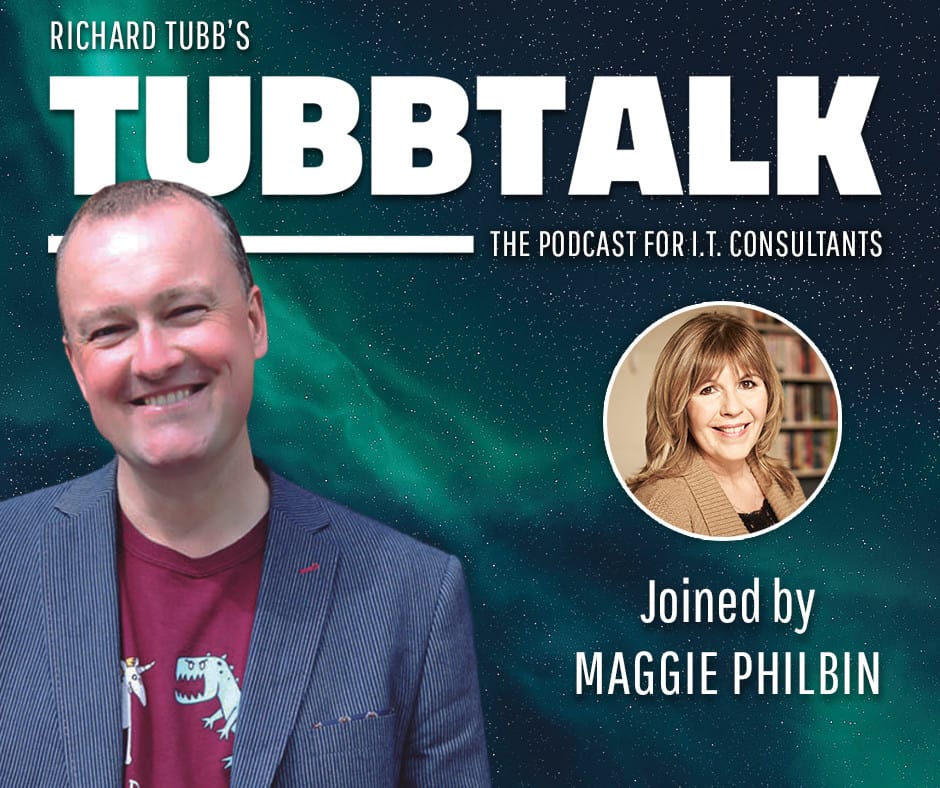Maggie Philbin, OBE, has worked in radio and television for over 30 years on a wide range of science, medical and 
In 2008, she co-founded TeenTech, an award-winning organisation which works across the UK getting young people innovating, creating building skills and preparing for a fast-changing future.
They help young people to improve their technology and digital skills. And they support them to find career opportunities in a range of organisations within their local area.
The Role the UK Government Plays in Encouraging Young People into STEM
Maggie tells me the government needs a serious rethink about what happens in schools. There are challenges on every front, especially poverty, education, health and equality.
Young people can’t always see the point of what they’re learning. Schools should be able to educate students to be the kind of employees who will succeed in the workplace. The pressure of exams means students don’t realise their own potential.
The government should support a seismic change in how schools approach learning. And teachers should be supported to help young people learn things that are relevant for the 21st century.
How Young People View IT and Tech
Many young people don’t know a lot about IT, and so their enthusiasm varies. If they know someone who works in tech, they have a better idea about what might be possible for them.
Maggie adds that once they do know about the opportunities available, there’s no stopping them. They become really enthusiastic because they see it’s an important area. And they see that they could do something and make a difference.
How Business Owners can Encourage Young Women into the IT Industry
Maggie thinks the majority of businesses don’t set out to exclude women. There is a retention issue, though. And the higher up the organisation you go, the fewer women there are.
Sometimes there’s a culture of promoting men, too. When you’re advertising for a role, make it clear you’re flexible around childcare and so on. Some roles require specific skills that take years to acquire. But most don’t, so let people learn on the job. Does one person really need to do lots of tasks?
What Maggie Finds Exciting in the Tech Space
“5G has the potential to be a game-changer in so many industries. For instance, if you play games but you only do it at home plugged in. 5G has such low latency that everything speeds up. And lots of people can do things at the same time.”
Another example Maggie gives is the music industry, which has a very heavy carbon footprint. With technology, you could have a gig in your local pub. The bass player is there in person but the singer is in Mexico. These things are a real possibility.
Why Maggie was Attracted to a Career in Tech
When it comes to tech, Maggie says it’s not about the widgets; it’s about the people. They’re all trying to solve problems. “Until I did Tomorrow’s World, I hadn’t realised how many problems existed.
“People had seemingly wacky inventions that were actually really needed. One guy had a light-up fishing rod. Because you can’t see your rod in the dark! The innovation and tenacity of these inventors was so inspiring.”
If you’ve never seen Tomorrow’s World, then you might enjoy this compilation!
Quick Fire TubbTalk Listener Questions
Craig Sharp: Do you think we as a society have lost the wow factor on tech?
One big difference between when Maggie did Tomorrow’s World and now is the internet. It allows people a window into what’s going on in the world, and that wasn’t possible in the 1980s.
Another major difference, she says, is around secrecy. “We always showed products that were in prototype. Partly because the inventors hoped they might get funding from a viewer at home. Now, we focus on the latest iPhone iteration, and it’s kept secret.”
Tracy Pound: What can we do to support men looking to increase gender diversity in their business?
Men need to be part of the conversation. Sometimes, Maggie says, businesses want to achieve diversity. But they don’t want to change things to get there. You need to be committed to making improvements.
Sometimes, a cultural shift is what’s needed. “What makes a difference to women? Can you offer part-time or flexible working? People have all kinds of priorities in their lives. And ALWAYS value your talent.”
Polly Brennan: Does Maggie think robots and AI will ever replace humans at work, leaving us to pursue a life of pure adventure?
The idea was that robots would give us a life of freedom, but they just create more work. But the pandemic has encouraged people to re-evaluate what matters. And they see they’d like to work less and spend time with their loved ones. But robots probably won’t make that happen.
David Miller: Will we ever be able to transfer electricity via a wireless medium?
“Yes, definitely. There’s been some very interesting early experiments into this. But I couldn’t say when it’ll happen.”
David Withington: What was your reaction when you first saw smartphones?
“We saw things like cell phones on Tomorrow’s World. We heard all the time about having a computer in our pockets. That seemed unfeasible, because computers were huge! And so were mobile phones, so I didn’t imagine that was how it would work.”
Pascal Fintoni: Which sci fi TV or movie franchise would Maggie like to have starred in?
“I would have quite liked to have been in Doctor Who, because that was something I watched as a child. Or in Star Trek. I might not have been very good at it, but it would have been fun.”
Col Gray: Was Maggie always interested in science and tech, or was it her presenting role on Tomorrow’s World that got her interested in the subject?
“As a teenager I wanted to be a vet, and I was interested in the sciences. But unfortunately I wasn’t good at chemistry. So I switched to the arts, and worked in TV. The Tomorrow’s World role came out of the blue but it was a happy combination of what I was good at and what I was interested in.”
Gudrun Lauret: What was the most ridiculous invention you saw, and which didn’t make it that you wish had?
“Those two things are often the same. The piece of technology I demonstrated that I thought wouldn’t go anywhere was car navigation. Because we had that before we had the satellite bit.
“There was a huge board on the windscreen with a computer in the boot. It didn’t seem practical. Once they had the satellite and made it smaller, then it worked.”
How to Connect with Maggie Philbin
- Maggie’s website
- Follow Maggie on Twitter
How to Connect with Me
- Subscribe to TubbTalk RSS feed
- Subscribe, rate and review TubbTalk in iTunes
- Subscribe, rate and review TubbTalk on Stitcher Radio
- Subscribe and rate TubbTalk on Spotify
- Follow TubbTalk on iHeartRadio
- Follow @tubblog on Twitter
Mentioned in This Episode
- TeenTech
- TeenTech Live Newcastle
- Tomorrow’s World
- Computer Weekly Most Influential Women in Tech list
- Northern Power Women
















Comments